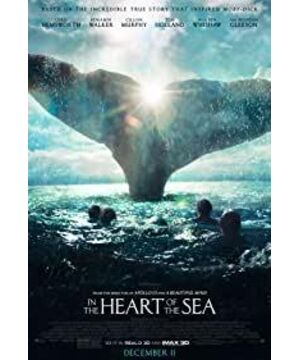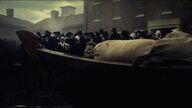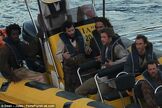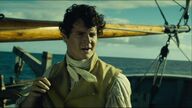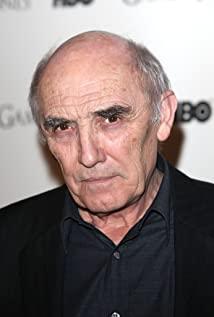Hewen Marvey completed a novel in 1850, and published Moby-Dick a year later. Hawthorne, a well-known American writer, commented: This work is comparable to Homer's epic, and he is an American epic. Howe Marvey came to southern Nantucket in February 1850 to find survivors of the whaling ship Essex.
First understand Nantucket Island: also translated Nantucket, the Atlantic island is 48 kilometers south of Cape Cod, Massachusetts, USA, about 24 kilometers long, formed due to glacial action. There are vast beaches, wide harbours and mild climate. In the early days, there were fishing, boat manufacturing and trade. At the beginning of the 18th century, there was a whaling industry. On the eve of the War of Independence, it reached its peak and was the base for more than 125 whaling ships. The economy declined after the war of 1812, and was quickly replaced by other ports, and recently improved transportation conditions to develop summer tourism. Places of interest include colonial buildings, captain's houses and cobblestone roads, museums, galleries and yachting facilities. Population 6,012 (1990).
This film is about in 1819, after the whaling ship "Essex" was sunk in retaliation by a huge whale, the crew drifted on three small boats for 90 days, and they experienced an unprecedented experience. human trials and tribulations. As one of the few surviving survivors, he has endured nearly 30 years of mental torture, telling the author that he does not want him to be paid a penny. He just wants to get God's forgiveness through such repentance. What kind of secret is it? It's been hidden for so many years, why do you still say it? Let's find out with the video:
In 1816, people used whale oil for lighting, and this demand was increasing day by day. The male protagonist was a veteran whaling captain at that time. He was straightforward, brave, and has rich fishing experience. But this time, the top leadership of the "Essex" whaling ship has handed the captain's job to an inexperienced man simply because he is a descendant of a whaling family. This decision made the male protagonist very unhappy. After increasing his salary and signing a written contract to become the captain on his next trip, the male protagonist reluctantly agreed to cooperate with the captain and embarked on a difficult voyage full of unknowns.
The survivor was a teenager who was an apprentice at the time. He liked the capable chief mate and hated the arrogant captain. At the beginning, the two had constant friction and encountered a strong storm. The chief mate wanted to detour to avoid risks and losses. The captain seemed to be fighting against him, but ordered a straight drive to shorten the voyage. As a result, a large amount of seawater was immersed in the ship, and the canvas was severely damaged. After repairing the boat and fishing intermittently, they came to Ecuador in Atacames a year later, and this time they caught a lot of whales and the harvest was full.
But it didn't take long to enter the fish-free period. After a long search and waiting, they came to the offshore fishing grounds after 14 months: 2000 nautical miles west of South America, near the Chilean island of Mas afoeira, they met the legendary man. A huge, white-spotted whale. When the male protagonist saw it, he was dumbfounded. He had never seen such a huge whale before. Judging from the footage in the film, the length of this giant whale is exactly the same as that of the whaling ship. At this time, the male protagonist was very calm, patiently waiting for the position closest to the giant whale, and threw the whaling fork to the head of the giant whale. The fork hit the upper right side of the giant whale's eye, and I saw it struggling in pain, but it was freed by it for a while.
The whale king in the depths of the ocean has been offended by human beings, how can he just let it go? So it took revenge on the Essex whaling ship. It knocked out a big hole in the hull, and the boat began to tilt immediately after it entered the water. The crew put three small boats into the sea, the captain was packing his luggage, and the male protagonist was almost unable to swim out in order to save a few life-saving guns. , so in 1819 in the South Pacific, the "Essex" whaling ship sank. Unexpectedly, this giant whale has been quietly following their three boats.
When it overturned the other two boats one after another and surfaced, it stared at the male protagonist's eyes sternly and solemnly. As if to say: "You humans are really greedy, now come to the game of death, whether to play or not?" The male protagonist did not move and did not shoot. It was the whale king who taught him in an instant: what is awe and what is moderation. When the three small boats were drifting on the endless sea, there was no fresh water to drink, no food to eat, and they were still being roasted by the sun. In such an environment, the test of humanity came one after another. A crew member died on the male lead's boat, and they reluctantly took his meat to eat and then buried him at sea; on the captain's boat, four people drew lots, and the captain's cousin committed suicide heroically, giving up hope of survival to the captain. Although the reality is cruel, but from a rational point of view: do you choose to die together? Or are most people alive? I believe you will choose the latter.
The survivors finally returned to their hometowns on June 11, 1821 after being stranded on the island and rescued by freighters. When the male protagonist saw his wife who came to greet him and his son who had not met, he showed a happy smile, and he was once again sure that it was right to not offend the whale king again, which brought him good news. In the end, when the leader asked the male protagonist to do perjury and defraud the insurance money, the male protagonist firmly refused: because his reputation and credibility cannot be offended.
View more about In the Heart of the Sea reviews


